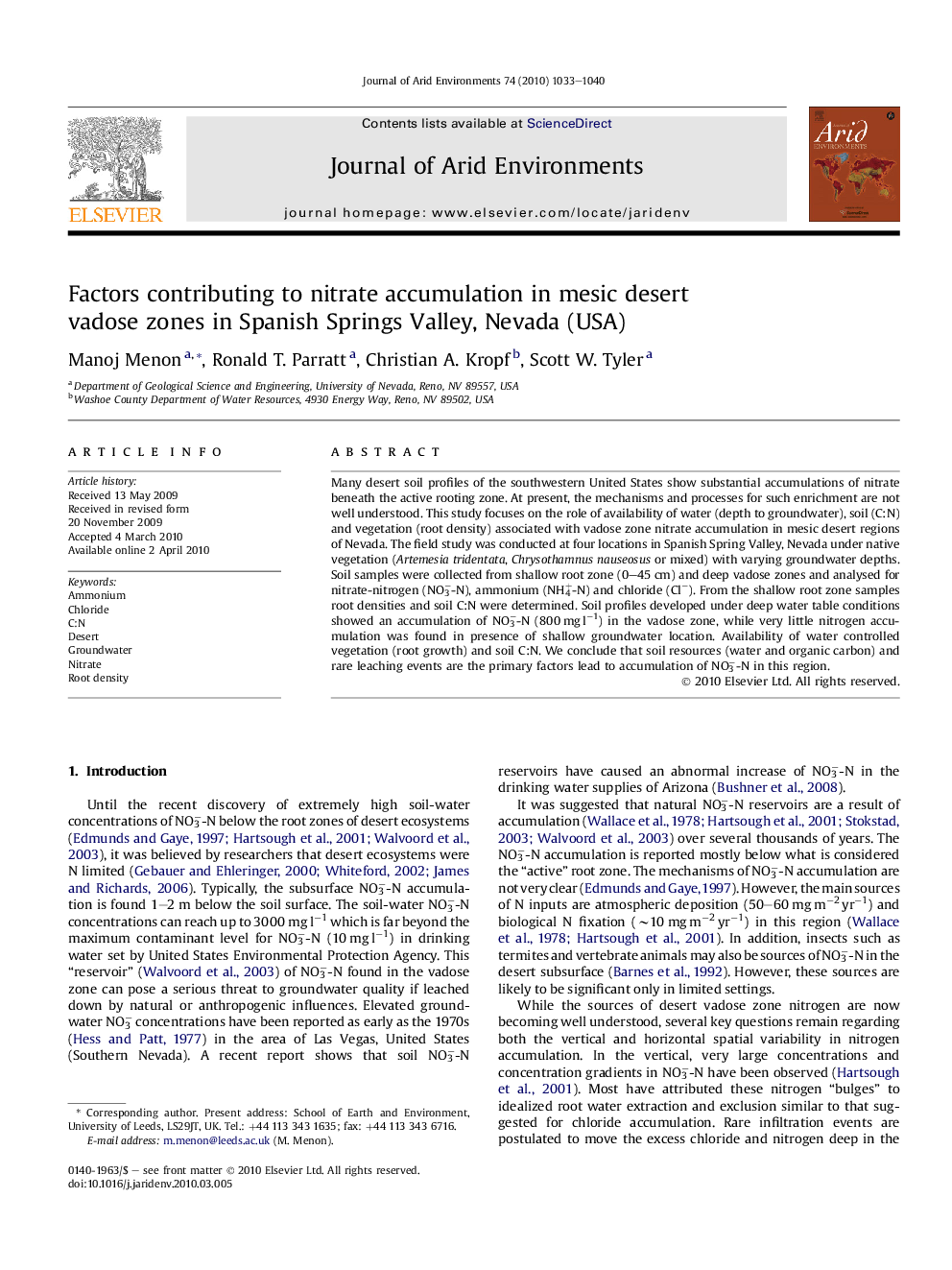| کد مقاله | کد نشریه | سال انتشار | مقاله انگلیسی | نسخه تمام متن |
|---|---|---|---|---|
| 4393800 | 1305504 | 2010 | 8 صفحه PDF | دانلود رایگان |

Many desert soil profiles of the southwestern United States show substantial accumulations of nitrate beneath the active rooting zone. At present, the mechanisms and processes for such enrichment are not well understood. This study focuses on the role of availability of water (depth to groundwater), soil (C:N) and vegetation (root density) associated with vadose zone nitrate accumulation in mesic desert regions of Nevada. The field study was conducted at four locations in Spanish Spring Valley, Nevada under native vegetation (Artemesia tridentata, Chrysothamnus nauseosus or mixed) with varying groundwater depths. Soil samples were collected from shallow root zone (0–45 cm) and deep vadose zones and analysed for nitrate-nitrogen (NO3−-N), ammonium (NH4+-N) and chloride (Cl−). From the shallow root zone samples root densities and soil C:N were determined. Soil profiles developed under deep water table conditions showed an accumulation of NO3−-N (800 mg l−1) in the vadose zone, while very little nitrogen accumulation was found in presence of shallow groundwater location. Availability of water controlled vegetation (root growth) and soil C:N. We conclude that soil resources (water and organic carbon) and rare leaching events are the primary factors lead to accumulation of NO3−-N in this region.
Journal: Journal of Arid Environments - Volume 74, Issue 9, September 2010, Pages 1033–1040